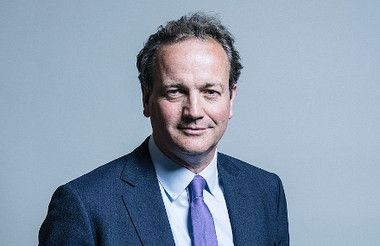The government does not understand the social investment market, former civil society minister Nick Hurd said yesterday.
He told the Social Investment Commission yesterday that Whitehall departments still do not “get” the social economy, and that the ambitions he set out for the social enterprise market a decade ago have not been realised.
Hurd was the minister responsible for civil society from 2010 to 2014, and led the government’s work to create Big Society Capital (BSC) in 2011.
He was a Conservative MP for 14 years and is now the chair of the Access Foundation.
'I don't think the government really gets it'
Asked by Lord Victor Adebowale, the chair of the Commission, whether the social investment market had achieved the strategic goals he set as a minister ten years ago, Hurd said: “I don’t think so.”
The Social Value Act and procurement reform had acted like “a wedge in the door” to open up the social investment market, he argued.
However, Hurd told Adebowale: “If you ask me whether Whitehall gets the social economy, or sees it as a highly-valued partner, particularly in a Covid context where we need to be thinking in new ways about how services to the public get delivered – then no, I don’t think we are anywhere near where you and I want to be.”
Pressed on whether the current government understands the social investment market, he replied: “No, I don’t think the government really gets it.
“I think there are people inside DCMS [the Department for Digital, Culture, Media and Sport] who get it but, with the best will in the word, and they’d be the first to admit it, that is not the most powerful department in government.”
Hurd, who also served as a minister at the Department for Business, Energy and Industrial Strategy, added that he did not believe the social economy “is in the DNA of our business department”.
Lack of progress in service delivery
Hurd said that the social economy had not achieved enough in changing the way services are delivered to the public.
He said: “I don’t think we have made nearly enough progress – in fact arguably we have gone backwards – in connecting the social economy to the public sector, and opening the minds of government to the value-proposition of the social economy, in terms of helping deliver better public services.”
There was “some progress, but some very frustrating shortfall in some key areas”, he said.
Later in the meeting, Hurd said the social investment sector was “still in the foothills” of making an impact on procurement and commissioning.
Social investment while cutting grants
Talking about the challenges of persuading charities and social enterprises to work with BSC when it was first established, Hurd recalled events all over the country which were “very difficult, because we were talking about repayable capital at a time when money was coming out of the market in terms of grants being cut.
“We never imagined social investment to be a substitute for grants, we always wanted it to be another tool in the box, but that context was very hard to explain and build trust around”.
Barriers to the market
Responding to a question from Adebowale about barriers to social investment for enterprises led by women and people from ethnic minority backgrounds, Kate Welch, chief executive of the Durham-based Social Enterprise Acumen, said: “We are not necessarily seeing that women are finding it any more difficult than men in the north east in the same space.
“We have a high proportion of female-led social enterprises.”
Welch said this was thanks, in part, to supportive early-stage funders for new social enterprises.
She said that some Black and ethnic minority social entrepreneurs faced “a real challenge” accessing the market, however, adding that her organisation is putting more resources into supporting those entrepreneurs.
Last week the Commission heard that Black and ethnic minority social entrepreneurs faced "clear structural barriers" to accessing finance.
Related articles










